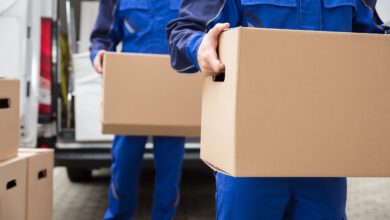Hurricane survival and preparation tips

Mother nature has a tendency of reminding us who’s in charge. Hurricanes are some of the worst, costly, and disastrous natural perils are known to man. They come swiftly, bringing strong winds, immediate flooding, and torrential rains. That’s why FEMA and other organizations such as Cane Bay Company have engaged in a unified effort to restore the US Virgin Islands and save lives. While you cannot predict where a hurricane will hit next, the best way to minimize potential damage and protect yourself and your loved ones are to be prepared.
Related: Five Appliances You Need in Your Kitchen For Better Life
During this 2021 hurricane active season, NOAA’s Climate Prediction Center predicts 13 to 20 storms 6 to 10 of which will strengthen into hurricanes 3 to 5 of which may end up becoming major hurricanes with winds ranging above 111mph+. Don’t wait till a hurricane watch is issued to start your preparations because it may be too late to take specific precautions. To minimize property damage and get through a hurricane emergency with less stress, begin preparations as early as now. Here are a few tips you can utilize.
Know What You’re Up Against
Understanding what you’re dealing with means winning half the battle. Generally, the deadlier the hurricane, the bigger the preparations. Storms come in varying strengths which are categorized on the Saffir Simpson Scale that rates the winds on a scale of 1-5. Any sustained winds beyond 74mph are classified as hurricanes, and anything below it is simply a tropical storm. These winds are deadliest at 155+mph, also known as category five storms. If you live near the coastal regions and have received a hurricane warning ranging between 131 and 155+mph, you should seriously consider evacuating. If you have time, get everyone to pack up all your items and leave the house immediately to a safe location.
Related: How can you Improve the Quality of your Life: 5 Best Life Lessons
Obey Evacuation Orders
Once you receive an evacuation order, leave the property sooner or within the stipulated time frame. When the storm arrives, it makes moving impossible or difficult. Extreme winds carry flying debris which makes traveling dangerous. In most cases, the storm will carry hazardous objects that can cause severe injuries. Some of the documented injuries include amputations, decapitations, crushing, maiming, and other traumas. If you stay behind, you put your life and responders’ lives at risk. Most evacuation orders are given to the low-lying coastal regions and areas along the rivers. Storm surge takes 50% of lives lost in a hurricane. If you have pets, be sure to have prior arrangements, as most shelters don’t accept pets.
Create a Hurricane Survival Kit
Preparation is key. Whether you’re evacuating or not, make a few arrangements to minimize damage and prevent loss of lives. Creating a hurricane survival kit ensures that you get everything you need on time to survive the storm without forgetting anything. Think about what could happen and imagine how the storm would affect you and your family. If you have a safe room to keep everyone in an emergency, prepare it in advance and make sure there are enough supplies to last at least one or two weeks. It may take time until emergency responders reach you, so it’s critical that you have a survival plan until help comes.
Related: 25 best habits you can have in life
Review Your Insurance Policies
When it comes to hurricane preparations, it’s essential to think of financial security. Remember, after the storm, life must go on. Your children will need to go back to school, and you might have to change jobs and find a new home. All these require money, and that is where insurance policies come in. Homeowners insurance covers hurricane damage as well as additional living expenses in case your home is completely destroyed. However, the policy doesn’t cover floods, so if your home is flooded, you may want to look into a flood insurance policy that protects the structure and your personal belongings.











